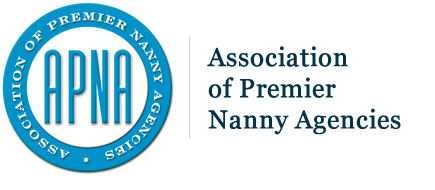Many nanny staffing agencies have temporary divisions to staff anything from a Friday night babysitter for a private family, to a substitute caregiver for a local church’s Sunday childcare program. While it is well established that nannies placed through the permanent division of the agency are the employees of the families they work for, what about temp caregivers? 
Is The Temp Caregiver an Employee or Independent Contractor?
Childcare providers working for a family or other organization – be it child care center, religious institution or other – are employees. The pertinent question is who is the employer? It is generally held that the party paying the caregiver is the employer, although there are joint employment risks to be addressed.
The IRS maintains that workers such as nannies and other caregivers that are paid directly by a family are the employees of that family. The same is true for a church or other organization hiring a temporary caregiver if they pay the caregiver directly. Whether they hire a caregiver for one hour or full time, they are an employer subject to all labor laws and regulations. Legally, the caregiver is the employee the first day work takes place, and labor law protections such as overtime and minimum wage apply. Tax payment and reporting obligations, however, hinge on the total amount of wages paid to the temporary household employee, and in the case of an organization, their tax exempt status (churches occasionally file for an exemption from payroll taxes). Tax responsibilities, therefore, are not a factor of whether she/he is a permanent employee or a temporary employee. In the case where the nanny staffing agency provides the temporary caregivers and pays them directly, the staffing agency is the employer.
Private families will have tax obligations if:
They pay the temporary employee $2200 or more in the year (2020), or
They pay one, or more employees, a total of $1000 or more in a calendar quarter.
If they meet either of these criteria, they will be required to file and remit taxes which may include Social Security, Medicare, and federal and state unemployment taxes.
The household employer is solely responsible for the remittance of the Social Security and Medicare taxes, which are assessed on wages paid to an employee once the $2,200 threshold is crossed, and are retroactive back to dollar one. Should the employer fail to collect this tax from the employee via periodic payroll deductions, the employer remains responsible to remit or pay the tax to the IRS. The household employee CANNOT remit their share of Social Security and Medicare tax independent of the employer. Be advised that unemployment tax liability wage thresholds are lower – between $500 and $1000 depending on the state. So, it is possible to have temporary nannies for whom Social Security and Medicare taxes are not required to be paid on, but where there will be an unemployment tax liability. These situations should be thoroughly discussed with your nanny tax preparer.
Also, if a family pays their temporary employee $2200 or more in the year they are obligated to provide her/him a W-2 form at the end of the year for tax purposes.
TIP: If the family will be paying the caregiver directly, they should always obtain the caregiver’s full legal name, Social Security Number, and permanent mailing address.
Agency Caregivers
Families and organizations wishing to avoid these obligations may choose to engage a temporary nanny who is paid directly by the referring nanny agency. In these cases where the agency pays the caregiver directly, they are the employer, and therefore take on the labor and tax obligations. These placements generally come at a higher cost per hour, but save the family or organization the headache of being the employer.
When using agency caregivers, the family or organization should always confirm, in writing, that the agency is the employer of the caregivers and responsible for all tax, labor law and insurance compliance. This avoids any misunderstandings and insures the family or organization against risks of joint employment. Beware the agency that pays the caregivers as independent contractors. This is improper and exposes the agency’s client – family, business or religious organization – to financial risks as these caregivers are not properly covered under workers’ compensation and unemployment insurance, nor are the required payroll taxes being paid.
About the Author:
Rachel Lawrence is HomeWork Solutions’ Agency Partner Specialist. She has more than a decade of front line experience working in a nanny agency, and works with agency placement counselors and their clients to insure each placement is properly grounded in fair and legal payroll. For more information about HomeWork Solutions Agency Partner Program, please visit https://info.homeworksolutions.com/consultation-request-4 .

